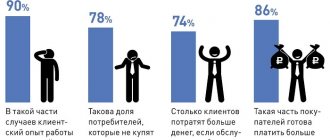Hello, friends. What do we need to become a truly happy person? So that our life
What are reflexes? This may sound scary, but it doesn’t control all our actions.
I don’t have enough experience yet. Staying too long at the theory and preparation stage is not the best solution.
Depression in adolescence is a complex and dangerous condition. Difficult - because
A melancholic person is sensitive, vulnerable and often anxious. However, his experiences are not particularly noticeable outwardly, since
Attention: properties, functions and types Attention is the focus of the psyche on certain objects, concentration on them.
Tips What kind of flattery is there? Subtle flattery Gross flattery Flattery in words Flattery in actions
Psychology considers personality from the inside and in relation to the surrounding space. Psychological climate in the team
Recently, more and more parents are turning to doctors with the request “I have hyperactive
Main theses The term “associationism” was introduced in the 17th century by the English thinker Locke. The concept itself received








